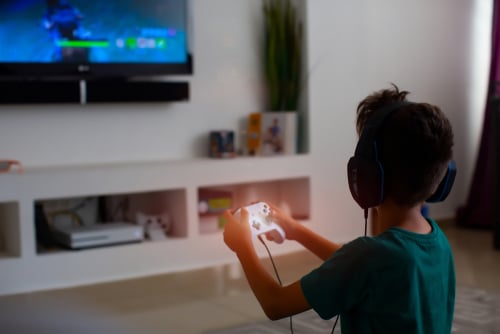How Do I Know if I am Gaming Too Much?

Video games have been popular since they put Pong in arcades back in the early 1970's. Eventually in 1977, gaming consoles in the form of the Atari 2600 were invented to play at home and the rest is history. One thing that is certain is that video games have peaked the interest of adolescents since the beginning of their emergence.
You may find yourself aimlessly gaming without a care in the world just because you enjoy playing some of your favorite games such as Minecraft, Roblox, or Fortnite. The problem with video games is they tend to capture your full attention for far too long instead of fulfilling your important tasks. No one wants to do chores or homework, but if you are skipping your obligations altogether just to play your game, you may be in danger of a much bigger problem on your hands - an addiction to gaming.
To find out what your status is with gaming, you can ask yourself the nine questions devised by the American Pediatrics Association (APA) to get a clear understanding of where you stand. Taking the quiz can determine how gaming truly affects your wellbeing.
- Do you spend a lot of time thinking about games even when you are not playing, or planning when you can play next?
- Do you feel restless, irritable, moody, angry, anxious, bored, or sad when attempting to cut down or stop gaming, or when you are unable to play?
- Do you feel the need to play for increasing amounts of time, play more exciting games, or use more powerful equipment to get the same amount of excitement you used to get?
- Have you felt that you should play less, but are unable to cut back on the amount of time you spend playing games?
- Have you lost interests in, or reduced participation in other recreational activities (hobbies, meetings with friends) due to gaming?
- Have you continued to play a game even though you were aware of negative consequences, such as not getting enough sleep, being late to school/work, spending too much money, having arguments with others, or neglecting important duties?
- Have you been deceptive, or lied to family, friends, or others about how much you game, or tried to keep your family or friends from knowing how much you game?
- Do you game to escape from or forget about personal problems, or to relieve uncomfortable feelings such as guilt, anxiety, helplessness or depression?
- Have you risked or lost significant relationships, job, educational, or career opportunities because of gaming?
Stonewater Adolescent Recovery Center offers nationally accredited academic curriculum to give our clients a chance at gaining an education while building a foundation with their sobriety. Our Academic Advisor can meet with you to create an academic plan for your teenage son and ensure balance will be captured with their therapeutic load.
Call us today to start living your recovery: 662-598-4214

.jpg)

